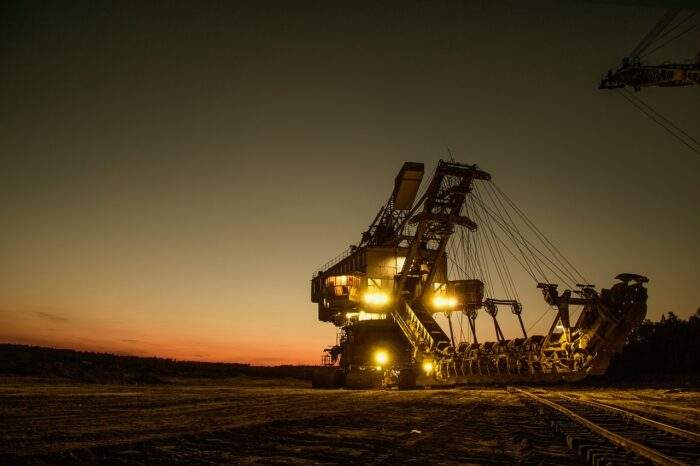Top Factors to Consider When Buying an Excavator
Buying new equipment is an expensive undertaking. Purchasing used excavators can save companies money while providing the power and capacity they need for their projects. When considering a used excavator for sale, it is essential to inspect the machine extensively. Consider factors like cab comfort and undercarriage condition. Also, ask about previous damage and maintenance records.

Reputation
If you’re shopping for an excavator for sale, you want to work with a dealer with a solid industry reputation. Start by asking for recommendations from colleagues and other construction equipment owners in your network. Online reviews can also help narrow down your options. It’s essential to verify the excavator’s history of operation and maintenance. Look for a record of regular servicing and a detailed account of any significant damage or repairs. In general, it’s best to buy an excavator that has had one responsible owner with a documented history of diligent service. A thorough inspection should include looking at the undercarriage, bucket, and stick pins to check for excessive wear. A full frame inspection should also be performed to understand how the machine was cared for and whether it has been in an accident. Afterward, compare the results of your review to the listing details to ensure the information matches.
In addition, buyers should consider how the excavator will be transported to its new home. Larger excavators require a special trailer for safe and secure transportation. If so, verify that the dealer or seller can provide this trailer or connect you with a third-party provider.
Price
Buying a used excavator can be more affordable than purchasing new equipment, but it’s still important to do your research. Visiting an auction site or dealer’s lot in person is recommended to inspect the equipment first-hand and compare the information listed online to ensure the quality of the machine you’re purchasing. Take the time to review the excavator’s condition and make note of any visible damages. Examining the equipment’s undercarriage and ensuring no missing parts is also essential. Also, consider the number of hours on the machine. Heavy equipment depreciates the most within the first year, so finding an excavator with low machine hours is a better option.
You’ll want to ensure the excavator has a documented history of responsible owners. Avoid equipment with few or no previous owners, as they were likely used as rentals and may have minimal maintenance records.
Once you’ve decided on the right excavator for your company, it’s time to consider your price and financing options. While a new excavator is always tempting, it’s essential to consider the upfront acquisition cost, operating maintenance, and downtime costs. An extremely cheap excavator may cost your company more in the long run due to high repair and downtime expenses. This can be counterproductive, as it leads to an investment tragedy.
Appearance
When buying an excavator, it’s essential to check the cosmetics of the machine. Look for fluid leaks and signs of rust or damage. This can indicate the quality of maintenance over time and how roughly the previous owner treated the equipment. It’s also a good idea to inspect the excavator for signs of wear and tear on parts like the undercarriage, engine, and tracks. You can ask the seller if any major issues or repairs are required for these components. This is especially important if you plan to use the excavator in harsh environments.
Additionally, consider whether the equipment has a remote monitoring system or other features that could be useful for your business. For example, if you work on larger excavation projects, invest in an excavator with angled backfill blades designed to refill and level holes in fewer passes, saving you time and fuel. Another consideration is operator comfort. If operators are uncomfortable in the cab, they will likely feel fatigued and lose focus and motivation. Consider asking the seller about the machine’s environment of use and if it has an ergonomic chair. When shopping for an excavator, shopping with a trusted partner or equipment dealership is a good idea. Private sellers don’t always have the same level of interest in educating newcomers to the industry or helping them make an informed decision. Their ultimate goal is to sell the excavator, and they may be unable to provide support after the sale.
Warranty
Often referred to as diggers or track hoes, excavators are one of the most common pieces of heavy equipment found on construction sites. These earthmoving vehicles can dig, trench, or transport loose materials like soil and gravel, making them valuable machinery for various projects. While excavators are an essential piece of machinery on many construction sites, it is crucial to carefully evaluate each model before buying. There are a few factors to consider, including purchase price, brand reputation, and warranty. In addition to the standard manufacturer warranty, consider purchasing a machine with a supplemental or extended warranty. This type of warranty provides additional coverage for specific components that may be more likely to break down, such as hydraulic fluids and filters. Lastly, make sure the excavator for sale you choose is suitable for your project by considering the different attachments available. For instance, an excavator can be fitted with brush cutters or mulcher attachments to clear land of unwanted vegetation and overgrowth effectively. It can also be equipped with buckets, augers, or breaker attachments to perform demolition and waste management tasks. The more work your excavator is expected to do, the more you should consider investing in a high-quality extension.





